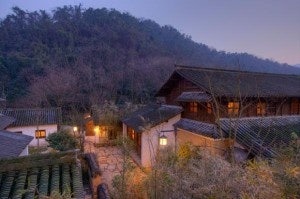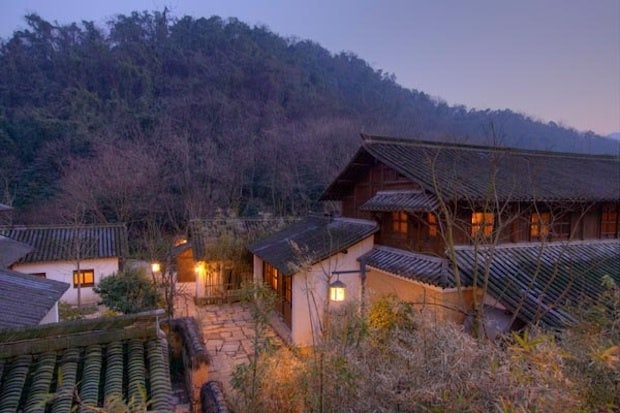Boutique Hoteliers Look To Buck Trend Of Chronic Low Occupancy#

Since China's luxury hotel boom of 2008-2010, which saw the number of five-star hotels balloon in preparation for major events like the Beijing Olympics and Shanghai World Expo, hotel expansion in China has shown no sign of stopping. As of last year, China had approximately 2 million hotels in total -- a number expected to leap to 5 million by 2016 -- and at the beginning of 2012, the number of five-star hotels in the country stood at 651, with an additional 500 scheduled to open in coming years. Despite a fast-growing domestic tourism and business travel market, this rapid expansion by both Chinese and international hoteliers has, since the closing of Shanghai's World Expo in 2010, led to chronic oversupply and low occupancy rates.
According to the Shenzhen-based consulting firm Hotelsolution, the occupancy rate at China's four- and five-star hotels sat at a little over 60 percent for the fourth quarter of 2011. As the firm pointed out, a hotel is only squeaking by if its rate falls below 60 percent. Despite challenges like these often low occupancy rates and market saturation in top-tier cities, hoteliers at the top end of the market still see huge opportunities in the Chinese market, which in inland areas and emerging economic centers like Chongqing, Chengdu and even Kunming, has ample untapped potential.
While major international and Chinese hoteliers pull out all the stops to attract more business travelers and domestic tourists, a major development in China's hotel market has largely flown under the radar: the growth of luxury boutique hotels. Often located outside of major cities like Shanghai or Beijing, and increasingly in areas of natural beauty like Yunnan province, China's small, home-grown boutique eco-lodges and spa-focused getaways have, in recent years, been joined by the likes of Amanresorts and Swire's Opposite House, much larger international brands focused on China's wealthy lifestyle-focused traveler.
In addition to their niche status, which sees travelers come to them rather than the other way around, opening a boutique hotel in China brings with it some innate benefits, among them not having to pay franchise fees to large hotel chains, not having to build lavish restaurants, ballrooms or meeting rooms, and overall better profit margins. However, the growth of the boutique hotel industry has been accompanied by a very specific set of challenges, including cultivating consumer demand and awareness of the industry, marketing, and a very common problem in the luxury industry in China: training and staff retention.

As He Jin of Fulinlehui Resort, near Hangzhou, told China Daily this week, boutique hotel operators like himself tend to market most heavily to guests in their early 20s to mid-50s whose incomes are at the mid- to upper-level and who own their own cars. Though He himself struggles with low occupancy rates during Hangzhou's low season, he says he prefers to keep a low profile, choosing not to cooperate with travel agencies as he worries they'll bring large numbers of group tourists, which could diminish hotel pricing and service standards. Lu Jiangwen, general manager of Hangzhou's Tea Boutique Hotel, agreed that boutique resorts need to resist the market temptation to grow too quickly, as it'll only serve to alienate their target customer segments.
Still, the focus on service that successful Chinese boutique luxury hotels have centered on has been something of a double-edged sword in some cases. As Lu told China Daily, his hotel has struggled with a high staff turnover rate, as talented staff members are regularly lured away by international five-star hotels.
